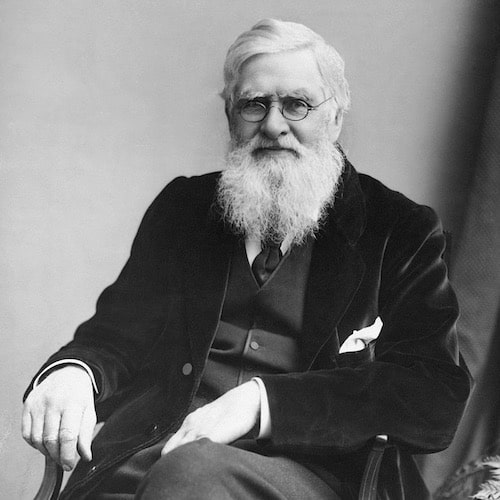 Evolution
Evolution
 Intelligent Design
Intelligent Design
Misunderstanding Wallace on "Intelligent Evolution"

As Evolution News pointed out here yesterday (“You Can’t Ascribe Intelligence to an Unguided Process“), Alfred Russel Wallace never actually used the term “intelligent evolution” himself. Instead, I have used it as an accurate description of his idea of a thoroughly teleological form of evolutionary theory. This is in stark contrast to his counterpart, Charles Darwin, with whom he shares credit for discovering the theory of evolution by natural selection. Readers who would like to know more about my use of the term may go here. But since Richard A. Watson brings it up in his article, “Intelligent design without a creator? Why evolution may be smarter than we thought,” I will add a few more thoughts on the subject.
Watson states that “intelligent evolution” prompted Wallace “to argue for divine intervention in the trajectory of evolutionary processes.” Yet Watson adds, “If the formal link between learning and evolution continues to expand, the same term could become used to imply the opposite.” This is Watson’s claim for “intelligent design without a creator.”
In addition to the important observations offered by Evolution News — Watson’s mischaracterization of ID, his misguided neural network argument, his questionable application of learning theory to evolvability, the conspicuous absence of information theory in his argument, and his anthropomorphizing of evolution itself — I would suggest more broadly that Watson misses the point. Whether or not evolution by means of natural selection might have some limited capacity to “learn” doesn’t really matter, especially if Watson is trying to save Darwinian evolution for naturalism. Alan Turing was right: it is now possible to create chess programs that over time can “learn” which moves produce winning games and drop those that create losing results. Over time, a machine can thus “learn” winning strategies. But it is important to bear in mind that the computer needed a programming language to do so and that came originally from a programmer. The computer’s ability to develop winning chess moves and strategies is not a self-emergent property.
As this relates to Wallace, the capacity for learning is equally beside the point. Wallace’s central argument was that certain attributes like love of beauty, art, dance, music, abstract thought, mathematical ability, religious and ceremonial expression are all inexplicable by natural selection or any other naturalistic mechanism. Wallace believed that it was unlikely for natural selection to somehow “learn” these things because there was no reason for it to do so. None of these enhance survival and they might even in some circumstances impede it. The question isn’t “Can evolution learn?” — but rather, how, by any naturalistic means entailed in Darwinian evolution, can we account for the true operations of a mind, namely, intentionality, foresight, purposive action involving choice, and tacit knowing (for more on this read Michael Polyani)?
Moreover, all these capacities must be demonstrated in Darwinian operations to really imply “intelligent evolution” as Wallace described it. For Wallace, the diversity of life meant the necessity of a “Mind,” and in 1910 he wrote about it at length in The World of Life: A Manifestation of Creative, Directive Mind and Ultimate Purpose. Intelligent design without a creator? Wallace didn’t think so.
Image credit: London Stereoscopic & Photographic Company (active 1855-1922) (First published in Borderland Magazine, April 1896) [Public domain], via Wikimedia Commons.
